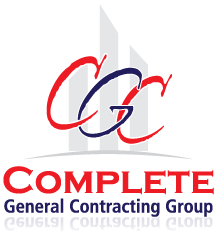Renovating your condominium can be an exciting yet daunting experience. Finding the right contractor is crucial to ensuring that your project runs smoothly and meets your expectations. Unfortunately, not all contractors are created equal, and hiring a bad one can lead to costly mistakes, delays, and endless frustration. Here are some tips on how to spot a bad condominium renovation contractor before it’s too late.

1. Lack of Proper Licensing and Insurance
A reputable contractor should have the necessary licenses and insurance to operate in your area. Always ask for proof of licensing and insurance before hiring a contractor. If they can’t provide these documents, it’s a red flag. Proper licensing ensures they are qualified to perform the work, and insurance protects you from liability in case of accidents or damage during the renovation.
2. Poor Communication Skills
Good communication is key to a successful renovation project. If a contractor is difficult to reach, takes too long to respond, or fails to provide clear answers to your questions, it could indicate future communication problems. A contractor who doesn’t listen to your concerns or provide regular updates can lead to misunderstandings and unsatisfactory results.
3. No Written Estimates or Contracts
A professional contractor should provide a detailed written estimate and a contract outlining the scope of work, timeline, and payment schedule. Avoid contractors who only give verbal agreements or are reluctant to put things in writing. A written contract protects both parties and ensures that everyone is on the same page regarding the project’s expectations and obligations.
4. Unusually Low Bids
While it might be tempting to go with the lowest bid, an unusually low estimate can be a warning sign. It could indicate that the contractor is cutting corners, using subpar materials, or planning to hit you with unexpected costs later. Compare bids from multiple contractors and be wary of those that seem too good to be true.
5. Lack of References or Poor Reviews
Always ask for references and take the time to check them. A reputable contractor should be able to provide a list of satisfied clients who can vouch for their work. Additionally, research online reviews and ratings on platforms like Google, Yelp, and the Better Business Bureau. Consistently poor reviews or a lack of reviews altogether can be a red flag.
6. High-Pressure Sales Tactics
Beware of contractors who use high-pressure sales tactics to get you to sign a contract quickly. A good contractor will give you the time to make an informed decision and won’t rush you into an agreement. High-pressure tactics can indicate desperation or a desire to lock you into a contract before you discover their shortcomings.
7. Unprofessional Behavior
Professionalism is a key indicator of a reliable contractor. Pay attention to how the contractor presents themselves and their business. Are they punctual, courteous, and respectful? Do they have a professional-looking website and business cards? Unprofessional behavior, such as showing up late to meetings or being disrespectful, can be a sign of how they will handle your project.
8. Unclear Payment Terms
A trustworthy contractor should provide clear payment terms, including a reasonable deposit and a schedule for subsequent payments based on project milestones. Be cautious of contractors who demand a large upfront payment or only accept cash. Clear payment terms protect you from financial risk and ensure that the contractor is motivated to complete the project as agreed.
9. No Portfolio of Past Work
A reliable contractor should have a portfolio of past work to showcase their skills and experience. If a contractor is unable or unwilling to provide examples of previous projects, it may indicate a lack of experience or subpar workmanship. Check out our portfolio for a sense of our style and quality of work.
10. Ignoring Building Codes and Permits
Professional contractors should be knowledgeable about local building codes and permit requirements. If a contractor suggests skipping permits or cutting corners to save time or money, it’s a major red flag. Ignoring building codes and permits can lead to unsafe conditions, fines, and complications when selling your property in the future.
Hiring the right condominium renovation contractor is essential for a successful and stress-free project. By being aware of these warning signs, you can avoid the pitfalls of working with a bad contractor and ensure that your renovation is completed to your satisfaction. A little extra effort upfront can save you a lot of headaches and money down the road. At Complete General Contracting Group, our work speaks for itself. Contact us to see why.


Recent Comments